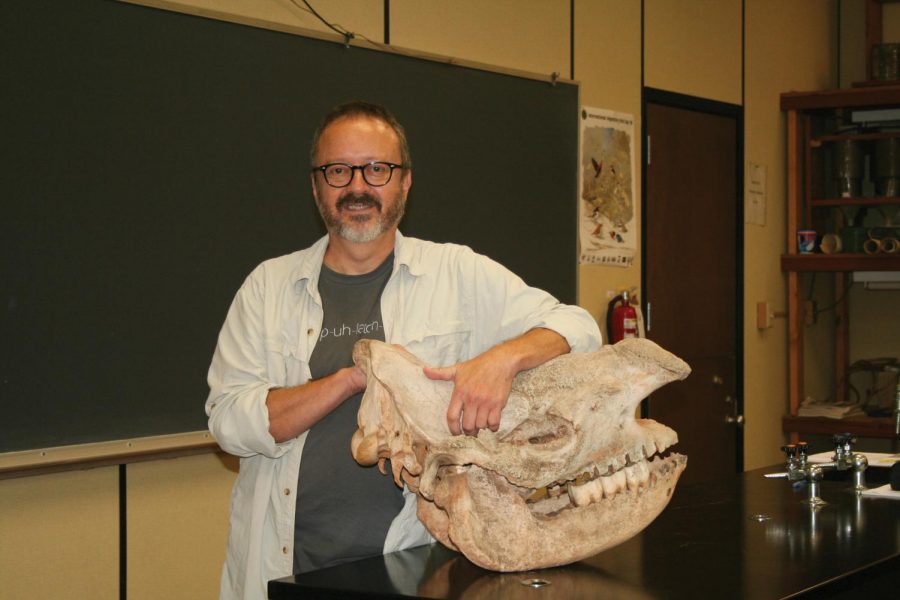Professor Spotlight: Travis Knowles
Photo by: Elizabeth Floyd
Travis Knowles, assistant professor of biology, works with universities across the world to do research at WildSumaco, a biological station that he co-founded.
Assistant professor of biology Travis Knowles has been inspiring biological curiosity as a professor at FMU for over 26 years.
Knowles said his interest in biology began in his childhood when his parents bought him a set of biology-centered books. His middle school teachers also helped open new doors into the fields of biology and ecology. Knowles said that many of his science teachers’ taught evolution, which was rare at the time, and it played a big part in helping him connect the dots in his own personal curiosities in nature.
After graduating high school, Knowles attended Wake Forest University (WFU) and graduated with a master’s in biology. Knowles said the most influential person during his time in college was the professor who helped him find his path and took time to help him follow his interests.
“I was never interested in the medical field or anything like that, which was what most of my classmates were doing,” Knowles said. “Having the support and direction from professors and courses that they made available really helped me to find the best way to follow my passion for natural history and biodiversity.”
“I believe that is my most important role now, as a professor, to help guide students and be an encouragement along the way,” Knowles said. “I love having the ability to do just like my professors did for me in the past.”
After graduating from WFU, he accepted a position on a research project on an endangered subspecies of flying squirrels with WFU as a wildlife technician. While working with WFU, a coworker showed him an ad for a professor position at FMU. Knowles applied and received the position, which began the start of a ten-year tract.
“Originally I thought that I’d be here for a couple of years and move on and do something else, but it became such an enriching experience that I stayed as long as I could,” Knowles said. “Eventually I ended up on a ten-year tract, and I’ve been here ever since.”
“The opportunities offered here both professionally teaching and research wise have been amazing all this time,” Knowles said.
Knowles has worked on a number of research projects with students over the years, which have mostly been centered on mammals. Today, Knowles is working as the director of the WildSumaco Biological Station that he co-founded in 2012. The station is located in the mountains of Ecuador, and is a biodiversity hot spot. It facilitates many ongoing groundbreaking research projects. One of these projects is a camera trap research project that Knowles is conducting to learn more about ocelot and margay behavior and species density in the area. The WildSumaco station has connections with many other universities that work as partners in discovery and education.
“I had this idea or dream in 2008 about making a place to do research and take students to learn about ecology,” Knowles said. “I had been discussing it with officials on campus but most importantly President Carter, who without his guidance and assistance this idea never would have happened.”
Knowles said that his favorite part about being a teacher is being able to share his passion for natural history with aspiring biologists in the undergraduate program.
“Being able to offer the amazing experiences of Ecuador to students is so important because it is one of the best opportunities for students to have that light bulb moment,” Knowles said.
